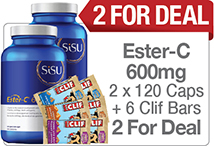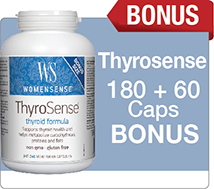Colitis
Updated Nov. 25th, 2022
Colitis, by definition, is an inflammation of the colon. The most common form is ulcerative colitis, when small ulcers develop on the mucous membrane lining of the intestine. When this occurs, the colon becomes unable to properly absorb nutrients and water, its main two functions. The ulcers can also bleed and produce excess mucous resulting in nutrient loss. There are a few different types of colitis, and they are categorized based on the cause of the inflammation. Colitis is one of the two main diseases covered under the term "Inflammatory Bowel Disease" (IBD). For more information on IBD, please click here.
Causes of Colitis
The underlying cause of colitis is not yet fully understood, although current theories attribute it to either infectious or autoimmune reactions, depending on the type of colitis. One type, known as pseudomembranous colitis, is caused by an overgrowth of C. difficile in the colon. For more information on the prevention and treatment of C. difficile infection, please click here. Ulcerative colitis is generally thought to be an autoimmune condition, which is when the body attacks its own cells. Other proposed causes include: low dietary fibre, high dietary sugar and refined carbohydrate intake, food allergies, stress, unresolved emotional conflicts and antibiotic use.
Diagnosis - Signs and Symptoms
The most common colitis symptoms are: cramping abdominal pain, diarrhea, and blood and/or mucus passed with the stool. In some cases fever, fatigue, and alternating constipation and diarrhea also occur. Individuals suffering from colitis will have varying periods of remission, and periods of aggravation of symptoms, known as "flares". Diagnosis of colitis must rule out other causes of cramping and diarrhea including acute infections, Crohn's disease and irritable bowel syndrome (IBS). The gold standard for diagnosis of colitis requires a colonoscopy with biopsy of the ulcers.
Complications
During a flare, the body can become malnourished due to nausea and low appetite, as well as anemia from blood loss. Over time, chronic colitis increases the risk of developing colon cancer because of the increased cellular turnover caused by inflammation.
Conventional Treatment
Conventional treatment of colitis involves the use of anti-inflammatory and immunosuppressant medications. Although these medications may decrease the symptoms they do not address the root cause of the problem. They may also contribute to nutrient deficiencies. Signs of nutrient deficiencies can include: clouded thinking, dizziness, hair loss, brittle hair and nails, flaking skin, and fatigue. Some medications have side effects associated with suppression of the immune system such as increased risk of bacterial and viral infections.
How Food Can Help
Following a colitis–friendly diet is often the only way to completely resolve the symptoms of colitis. This often involves eating a hypoallergenic diet to eliminate common allergenic foods.
Results are usually seen within six months but some patients must remain on the diet for several years before being able to tolerate the restricted foods. The most common food triggers are: milk products, wheat, corn, yeast, alcohol, caffeine, night shades (tomato, potato, and peppers) and salicylates (found in aspirin and the mint family). Foods containing these substances should be avoided. In addition, The Colitis Diet makes these recommendations:
"Foods to avoid: beans, peas, French fries, bacon, sardines, corn, nuts, seeds, citrus fruits, red meat, sugar, spicy food, carbonated beverages, carrageenan (a stabilizing agent used in cottage cheese, chocolate milk and whipped cream) and refined carbohydrates."
Avoid non-water soluble fibre like wheat bran, seeds, and raw vegetables. Avoid any other foods that you think may be causing you sensitivity reactions.
By following a diet that is low inflammatory you can reduce symptoms of colitis. The optimal diet to follow is one that is mostly vegetarian; red meat is incredibly inflammatory in the body. If you can’t eliminate red meat, at least reduce your intake for the associated benefits. Consume a large amount of fruits and vegetables, rice, potatoes, gluten-free grains, filtered water, carrot juice and other vegetable juices, green drinks, kefir, sauerkraut, butter, flax seed oil and kefir. If you are going to eat meat, considering baking or broiling them instead of frying and be sure to lightly steam or eat your vegetables raw. Fruit will be optimal if taken with a meal and not on an empty stomach. Some water-soluble fibres include oat bran, chicory root and apple pectin.
Mental-Emotional Connection
Many colitis sufferers will mention a stress, worry, and mental-emotional connection to their symptoms. Tackling the emotional aspects of colitis should also be a priority. Reducing stress and increasing exercise promotes proper bowel functioning. For more information on stress reduction, please click here. Abdominal massage and hydrotherapy can be helpful in the healing stages of colitis.
Supplements for Colitis
There exists a wide variety of supplements that can benefit colitis patients. It is very important to time them appropriately. Supplements that are beneficial during remission, can be problematic during a flare. In general, treatments targeted at reducing Leaky Gut, can also significantly help to reduce colitis flares. See below for a step-by-step guide at repairing the gut lining. Be sure to follow up with your healthcare provider to ensure you are using the right supplements for your specific case.
REDUCING GUT INFLAMMATION
There are a number of supplements that can reduce gut inflammation, but some of the best are:
Fish Oil
This oil is rich in omega 3 fatty acids, and has been shown to reduce inflammation, improve mood, thin the blood, and reduce blood pressure. For more information on fish oil, please click here.
Boswellia
This herb is renowned for its ability to reduce systemic inflammation in the body. Although it has been most thoroughly researched for the treatment of arthritis, its use can be expanded to other inflammatory conditions. For more information on Boswellia, please click here.
Curcumin
Another herb that has been established for its anti-inflammatory properties, Curcumin (tumeric) can be added to your cooking or supplemented directly as a great way to reduce any inflammation in your gut. For more information on curcumin, please click here.
HEALING THE GUT
There are a number of supplements that can help to reduce inflammation and speed the healing of the gut lining.
L-Glutamine
This amino acid can be considered the single most important supplement for restoring the integrity of the gut lining. It is a major food source for the enterocytes, and providing food allows them to replicate and heal regions of damage. For more information on Glutamine, please click here.
DGL (Deglycyrrhizinated Licorice)
Licorice is a soothing and healing herb that can soothe the intestinal lining directly and also acts to regulate the immune system and help calm any ongoing inflammation. For more information on DGL, please click here.
Demulcents
This class of herbs coat and protect the intestinal lining from any further damage. By protecting the lining, they give the enterocytes time to heal. Some examples are marshmallow, and slippery elm. For more information on marshmallow, please click here. For more information on slippery elm, please click here.
Preventing a Repeat Problem
Once the gut has been repaired, it is important to help it maintain its integrity after this intensive healing regime. One important means of doing this is by supplementing a probiotic. Probiotics help the body to properly digest food, and also protect against colonization with "bad" bacteria and yeast. They can also help to reduce the immune response to gut contents, and thus help to keep the immune system in check. For more information on the benefits of probiotics, please click here. In addition to preventative supplementation, diet and lifestyle changes are essential to maintaining periods of remission for as long as possible. Reducing or better coping with stress, eating well, and exercising are all essential to maintaining health in those with colitis.























I've had colitis since the age of 16 and, now in my middle ages, I've learned to control it fully through diet and supplements that include acidophilus, glutamine, and vitamin c.
Hello, Daniel,
Thank you for sharing, we're glad to hear you've found a natural way to manage this health concern and take back control! If you'd like to learn more about the supplements you're taking, check out our articles on individual supplements too:
https://www.nationalnutrition.ca/articles/supplements/
Stay healthy & well!